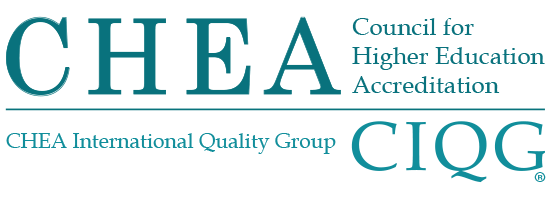INTERNATIONAL DOCUMENTS
The standards and guidelines for Quality Assurance in the European Higher Education Area (ESG) were adopted by the Ministers of Education in 2005 following a proposal prepared by the European Association for Quality Assurance in Higher Education (ENQA) in cooperation with the European Union of Students (ESU), the European Association of Higher Education Institutions (EURASHE) and the European Association of Universities (EUA).
Since 2005, significant progress has been made in the area of quality assurance, as well as in other areas of the Bologna Process.
In response to this change in context, the 2012 ministerial communique called on the E4 Group (ENQA, ESU, EUA, EURASHE), in collaboration with international education organizations, Business Europe and the European Register for Quality Assurance in Higher Education (EQAR), to draft a revised ESG "with a view to improving their clarity, applicability and usefulness, including the scope of application".
The development of the new version of the ESG included several rounds of consultations involving both key stakeholders and ministries. All comments, suggestions and recommendations received were carefully reviewed and taken into account by the Steering Group (WG). They are reflected in the final version of the standards and guidelines for quality assurance in the EHEA (ESG). The new ESG standards were adopted at the 2015 Conference of Ministers of Higher Education in Yerevan, Armenia.
The original new ESG 2015 document is available at the website ENQA and presented below: ENQA 2015 Standards and Guidelines
ECTS (European Credit Transfer and Accumulation System) was introduced in 1989 as part of the Erasmus program as a way to transfer loans received by students abroad upon their return to their original higher education institutions. Currently, this system plays an additional role in the accumulation of loans, the development, description and implementation of programs, facilitating the mobility of students within different countries through the process of recognizing loans and study periods. The ECTS Usage Guide provides recommendations for implementing ECTS and links to useful supporting documents.
The 2009 ECTS Guidelines were revised by the Bologna Process Working Group (BFUG) on 27-28 November 2014 in Rome and were approved at the May 2015 Ministerial Conference in Yerevan, Armenia. This revised version is based on the work carried out in recent years, developed in the countries of the Bologna Process, and in the individual countries. This was done to help the academic community and other stakeholders in the higher education move towards the changes promoted by the Bologna Process.
The revised guidelines take into account recent developments in the Bologna process, such as the creation of the European Higher Education Area (EHEA), the consolidation of continuing education, the paradigm shift from the teacher-centered to student-centered higher education, the increasing use of the concept of learning outcomes, and the development of new forms of learning and teaching.
This information is taken from the official ECTS User Guide.
More information about the European Credit Transfer and Accumulation System (ECTS) is available on the official website of the European Commission.
INQAAHE Good Practice Guide (International Network of Quality Assurance Agencies in Higher Education) is intended for use in the work of all quality assurance agencies, regardless of their stage of development. The original INQAAHE Good Practice Guide was published in 2003 and revised in 2006. The new version of the INQAAHE Good Practice Guide reflects the experience of institutions, programmes and experts who used the 2003 version. It is designed to continue the process of continuous improvement of INQAAHE.
The purpose of the Good Practice Guide is to promote good practices for internal and / or external quality assurance. Specific goals include:
- creating a framework for guiding the creation of new external quality assurance agencies (EQAAs);
- providing criteria for use in self-assessment and external evaluation of external quality assurance agencies;
- promotion of professional development among external quality assurance agencies and their employees;
- promoting public accountability of external quality assurance agencies.
This information is taken from the official INQAAHE Good Practice Guidelines.
More information about the INQAAHE Good Practice Guide is available on the official INQAAHE website.
Lisbon Recognition Convention (The Convention on the Recognition of Qualifications Relating to Higher Education in the European Region) was developed by the Council of Europe and UNESCO and adopted by the national representatives in Lisbon on 11 April 1997. It provides for the creation of a coherent and consistent framework for the recognition of relevant qualifications in the higher education system. The purpose of creating this document is to ensure that the qualifications of a signatory from one country can be recognized in another country.
The basic principles of the Lisbon Recognition Convention are presented below:
- Holders of qualifications issued in one country should have adequate access to the assessment of these qualifications in another country.
- Each country must recognize qualifications issued by other countries that meet the general requirements for access to higher education, in order to access the programs that make up its higher education system, unless it can be proved that there are significant differences between the general requirements and the qualifications for which recognition of this qualification is requested.
Recognition of a higher education qualification issued in another country must entail one or more of the following consequences:
- access to further education in higher education, including relevant examinations, and / or to the training in degree programmes, under conditions similar to those applicable to the holders of candidate qualifications in the country in which recognition is sought;
- use of the degree in accordance with the laws and regulations of the country in which recognition is sought;
- in addition, recognition can facilitate access to the labor market.
This information is taken from the official document of the Lisbon Convention on Recognition.
More information about the Lisbon Recognition Convention is available on the official website of the Council of Europe.


 Ministry of Science and Higher Education of the Republic of Kazakhstan
Ministry of Science and Higher Education of the Republic of Kazakhstan 


 Ministry of Education and Science of the Kyrgyz Republic
Ministry of Education and Science of the Kyrgyz Republic




